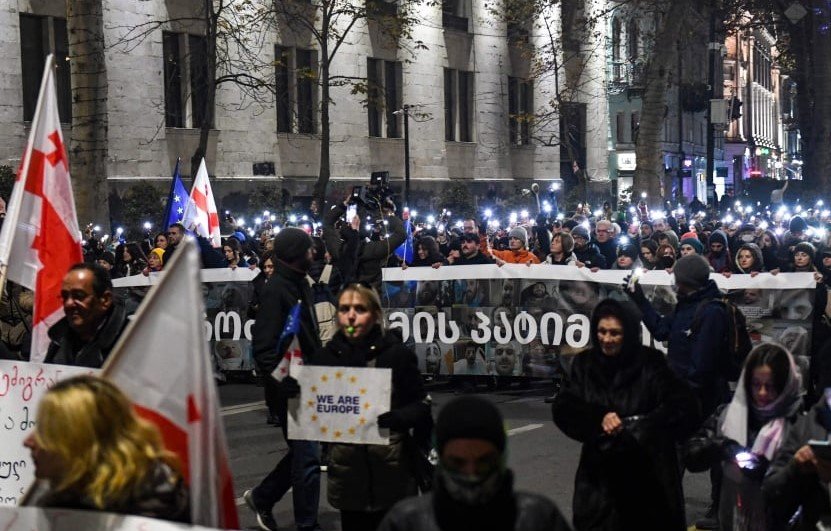Hundreds of Chiatura miners have taken their battle from the depths of Georgia’s manganese mines to the heart of its capital. After weeks of unrest, they gathered outside the Government Administration building in Tbilisi, demanding justice for unpaid wages and a radical shift in how the mining industry operates.
From Local Unrest to National Uproar
What started as a local labor dispute in late February has now escalated into a full-blown national issue. The tipping point came on March 7, when Georgian Manganese, alongside its contractor Chiatura Management Company (CMC), announced a complete halt to underground mining. The reason? Declining global manganese prices and mounting operational losses.
For Chiatura, a town that practically breathes manganese, this wasn’t just an economic hit — it was a gut punch. With 3,500 workers left jobless and unpaid for three months, the shutdown rippled through families and businesses alike.

A Town Left in Economic Freefall
Chiatura’s identity is intertwined with mining. The closure didn’t just rob workers of paychecks; it pulled the rug out from the entire local economy. Shops, services, and small businesses that depended on miners’ spending saw their revenues evaporate.
- 3,500 workers unpaid for three months
- 32 times higher than permissible air pollution levels cited by protesters
- 5% of manganese export revenue demanded for Chiatura’s development fund
Local leaders argue the town was already suffocating under environmental hazards linked to the mines. The combination of lost income and unchecked pollution has made life unbearable for many residents.
Protesters’ Demands: More Than Just Money
Standing in the crowd outside the government building, protest leader Tariel Mikatsadze laid out a bold list of demands — a blueprint for an overhaul of the region’s economic future:
- Immediate wage payments: Three months of unpaid salaries must be settled without further delay. Protesters also called on the state to assist miners in managing debts and loans that piled up during the shutdown.
- Nationalization of manganese operations: Workers are demanding the state take control of the manganese industry. But they’re not stopping at nationalization — they want a seat at the table, pushing for worker participation in decision-making.
- Health insurance for Chiatura residents: Environmental damage is a persistent grievance. Protesters claim air pollution exceeds legal limits by a staggering 32 times, citing a desperate need for healthcare coverage.
- Ban on Georgian Manganese: Protesters demand the company’s removal not only from Chiatura but also from Zestaponi and Vartsikhe, accusing it of widespread environmental and economic damage.
- Retroactive investigation: The crowd called for a probe into Georgian Manganese’s activities since 2006, tying future operational licenses to the investigation’s outcome.
- Revenue-sharing fund: A proposal for a fund receiving 5% of manganese export revenue to help Chiatura recover financially and support local education.
Government Response: Silence or Strategy?
So far, the government’s response has been muted — a silence that’s only fueling the crowd’s frustration. The protesters’ demand for nationalization stands in sharp contrast to Georgia’s generally market-oriented economic policies. Whether officials will engage with this proposal remains to be seen.
Political analysts suggest the standoff could become a flashpoint, especially with parliamentary elections looming later this year. The miners, however, seem prepared for the long haul. Some even vowed to stay camped outside the administration building until their demands are met.
What’s Next for Chiatura?
The next few days could determine the fate of the Chiatura miners — and potentially the Georgian mining industry at large. With public support swelling and the protest gaining media traction, pressure is mounting on the government to respond decisively.
For the miners, this is more than a fight for wages. It’s a fight for dignity, stability, and a future that isn’t tied to a company they say has let them down for nearly two decades.
